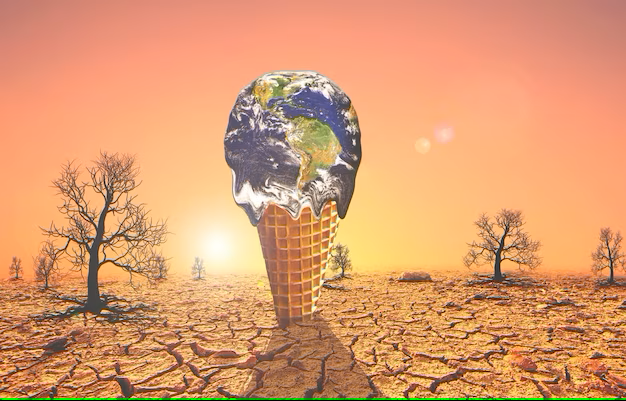Global warming is not just an abstract concept; it is a pressing reality affecting ecosystems, weather patterns, and human livelihood across the globe. With rising temperatures, erratic weather phenomena, and melting polar ice, it is imperative that individuals take action to mitigate these effects. Here, we will delve into practical strategies that anyone can adopt to combat global warming, emphasizing the need for collective responsibility and individual initiative.
Understanding Global Warming
At its core, global warming is primarily driven by the greenhouse effect. This is a natural process where certain gases in the atmosphere trap heat from the sun. However, human activities, particularly the burning of fossil fuels and deforestation, have exacerbated this effect by significantly increasing the concentration of greenhouse gases, notably carbon dioxide and methane. Understanding these mechanisms is pivotal in shaping effective responses.
1. Reduce, Reuse, Recycle
One of the most profound ways individuals can contribute to environmental preservation is through the mantra of reduce, reuse, and recycle.
The first step, reducing waste, can be achieved by opting for products with minimal packaging or choosing digital alternatives. For example, instead of purchasing a paperback book, consider borrowing from a library or opting for an e-reader.
Next, reusing items instead of discarding them prolongs their lifecycle. This can range from repurposing glass jars into storage containers to donating old clothes. Finally, recycling ensures that materials like paper, plastic, and metal are processed for reuse, reducing the demand for new resources.
2. Embrace Sustainable Transportation
Transportation is a major contributor to greenhouse gas emissions. As such, embracing sustainable alternatives can make a significant impact. Where possible, opt for walking or cycling for short distances. Not only does this mitigate fuel consumption, but it also promotes physical well-being.
For longer commutes, public transportation is a more environmentally friendly alternative compared to private vehicles. Trains and buses emit significantly lower greenhouse gas emissions per person. Alternatively, carpooling can also reduce the number of vehicles on the road, leading to fewer emissions.
3. Conserve Energy at Home
Household energy consumption plays a crucial role in contributing to global warming. Implementing energy-efficient practices can yield significant reductions in carbon footprints. Begin by replacing traditional incandescent bulbs with energy-efficient LED lighting. Not only do they consume less electricity, but they also have longer lifespans.
Investing in energy-efficient appliances can also drastically lower energy consumption. Furthermore, practices such as unplugging devices when not in use, using programmable thermostats, and enhancing home insulation can reduce unnecessary energy expenditure.
4. Adopt a Plant-Based Diet
The production of meat and dairy significantly contributes to greenhouse gas emissions. The livestock sector is responsible for a considerable percentage of methane emissions and requires extensive land and water resources. Transitioning to a plant-based diet—even partial—can dramatically reduce one’s carbon footprint. Incorporating more fruits, vegetables, legumes, and whole grains can be beneficial not just for the environment, but also for personal health.
Moreover, opting for locally sourced produce minimizes the carbon emissions associated with transportation, while also supporting local economies.
5. Support Renewable Energy Sources
Transitioning from fossil fuels to renewable energy sources, such as solar and wind power, is instrumental in combating global warming. If feasible, consider investing in solar panels for your home. Even if installing panels isn’t an option, opting for a green energy provider can contribute to the demand for renewable energy in your area.
Additionally, advocating for policies that support renewable energy initiatives at the local, state, and federal levels can foster broader societal changes, hastening the transition away from fossil fuel dependency.
6. Foster Sustainable Practices in the Community
Individual efforts can be amplified through community engagement. Participate in local environmental groups or initiatives, which often aim to educate others about sustainable practices while also providing support for community-wide projects such as tree-planting events or clean-up campaigns.
Promoting sustainability within your sphere of influence can lead to a larger cultural shift. Engage your friends, family, and colleagues in discussions regarding climate change and sustainable living practices. The discourse around these topics helps raise awareness and can spur collective action.
7. Advocate for Policy Change
While personal actions are essential, systemic change is necessary to combat the climate crisis effectively. Advocate for policies that address climate change on a larger scale, such as carbon taxes, emissions regulations, and conservation efforts. Engage with your representatives; express your concerns and support for legislation that prioritizes environmental preservation.
Conclusion
Global warming poses an imminent threat to our planet, but through informed action and diligent efforts—both individually and collectively—we can work towards mitigating its effects. Each decision we make has the potential to contribute to a healthier environment. By reducing waste, embracing sustainable transportation, conserving energy, opting for a plant-based diet, supporting renewable energy, fostering community practices, and advocating for policy changes, we can save our environment and ensure a sustainable future for generations to come. The time to act is now, and every small change counts in the fight against climate change.






